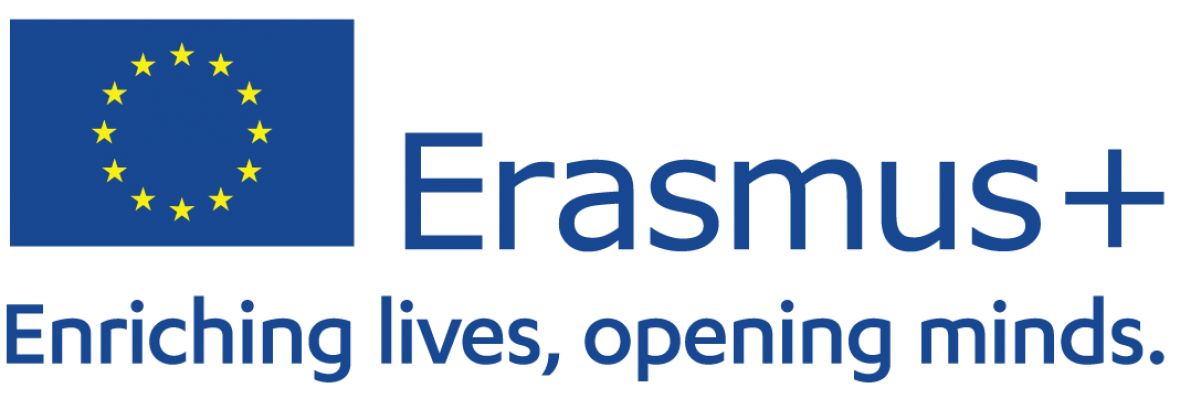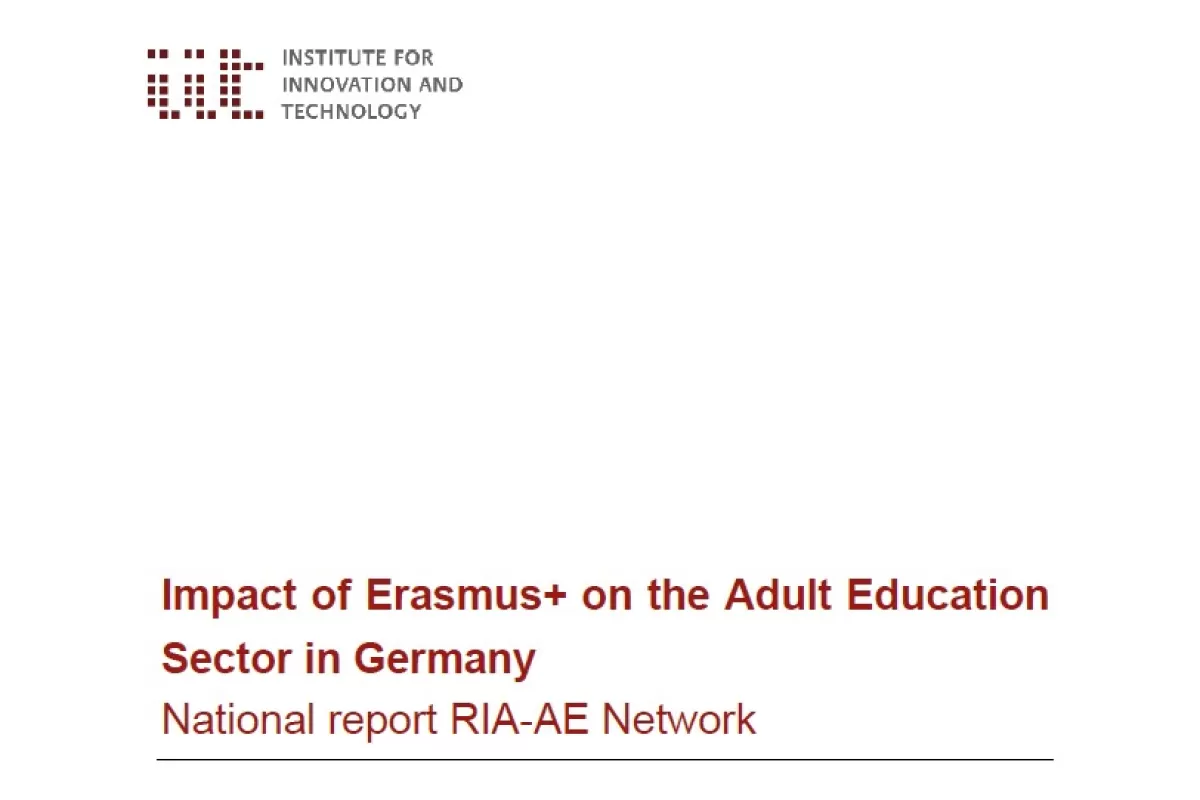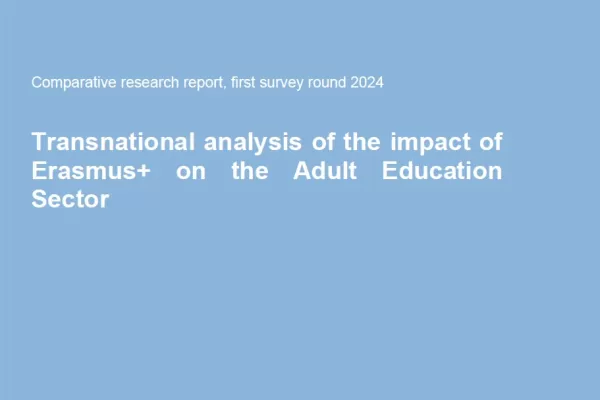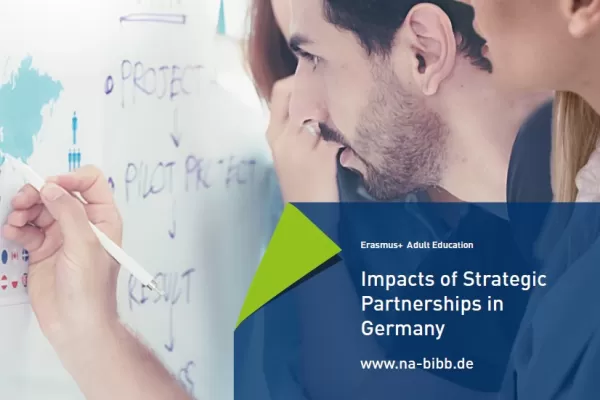Resume
This study, part of the RIA-AE Network's transnational monitoring of Erasmus+ in adult education, evaluates program impact in member countries through national studies using consistent methodology. These studies inform National Agencies about Erasmus+ implementation and feed into a transnational analysis, emphasizing European-level impacts and program development. The focus includes Key Actions 1 (learning mobility) and 2 (cooperation between organizations), assessing effects on institutions, staff, learners, and the adult education sector, with attention to EU priorities like inclusion, climate change, digital transformation, and civic engagement. Data collection employs a mixed methods approach, combining document analysis, surveys, case studies, and interviews.
The Erasmus+ program demonstrates significant benefits, fostering internationalization, enhancing collaboration, and supporting the professional development of organizations and individuals. However, barriers to participation persist, particularly for underrepresented and resource-constrained organizations. Efforts to promote inclusion, equitable funding, and resource dissemination remain crucial. Mobility activities show clear value, especially for disadvantaged learners, highlighting the program's transformative potential. Strategic initiatives focusing on horizontal priorities like sustainability and democratic participation can further enhance the program's impact across diverse sectors.
Conclusions
- Strong recurring engagement by organizations due to demonstrated benefits.
- Barriers for new participants include resource constraints and administrative complexity.
- Clear impact on internationalization and organizational innovation.
- Uneven focus on EU priorities, with green transformation and civic engagement less emphasized.
- High added value of mobility for learners, especially disadvantaged groups.
Recommendations
- Enhance outreach and support: Strengthen umbrella organizations and peer learning to encourage new participants.
- Facilitate inclusion: Address financial and logistical barriers for disadvantaged learners through increased funding and targeted programs.
- Promote horizontal priorities: Integrate green transformation and democratic participation more prominently into project criteria and funding priorities.
- Boost dissemination: Provide resources for high-quality translations, extend use of national platforms, and support project result sharing post-completion.
- Simplify mobility access: Offer comprehensive networking opportunities to help organizations identify partners and design relevant mobility offers.
- Incentivize organizations: Highlight the personal and institutional benefits of participation to motivate involvement from underrepresented sectors.
Downloads
- Impact on the Adult Education Sector 1MB / pdf Download
More information?
Looking for more information about this project? Get in touch: RIA-AE@bibb.de.




